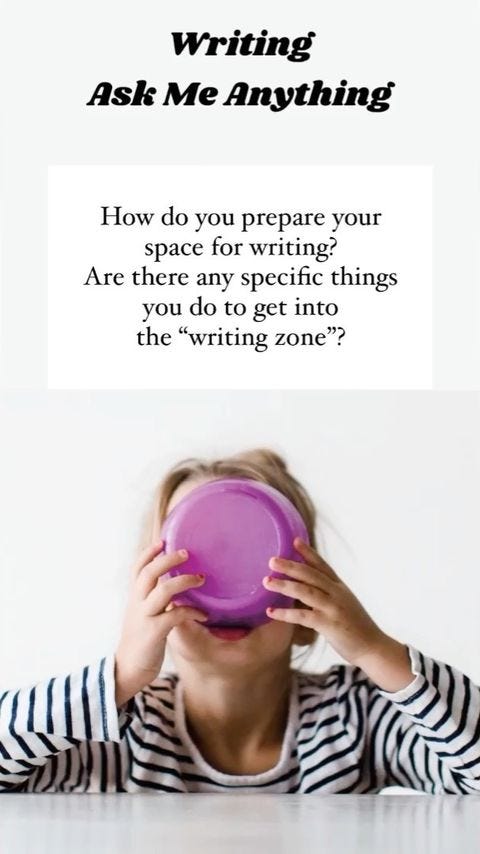Question: My 13-year-old would eat the entire box of Oreos. What should I do?
Answer: Pour a glass of milk so they can dunk them?
Don’t worry. That’s not my whole answer. But it’s also not a bad idea. I don’t have any information beyond the sentence above, but I’m guessing that the person asking this question is expecting to get a strategy to reduce their 13-year-old’s Oreo consumption. It’s unnerving to see a kid eat a lot of cookies in one go—or to find the crumpled bag in the trash later. Our brains scream that can’t be healthy! Because it feels so...unbridled and out of control. And we’ve been taught, over and over, that binge eating, in any form, is bad.
But I’m not going to tell you how to make your kids eat less Oreos. The thing we’re not taught about binge eating is that it most often happens in response to restriction. A 2008 study of 259 boys and girls aged 8 to 13 years old found that dietary restraint predicted the onset of binge eating one year later. “The more we try to limit the food we view as ‘unhealthy,’ the more our kids want those foods,” says Shira Rosenbluth, LCSW, a therapist who specializes in eating disorder treatment. “And then when they’re around them, they have a hard time stopping themselves from eating it. When we view all foods as neutral, our kids end up feeling a lot calmer and more secure around these foods, because they know they can have it at any time.”
You may think, “I don’t restrict my kids!” Because we often define restriction as a full-on eating disorder behavior. But if you pick up the empty Oreo bag and sigh, or if you comment on how many Oreos your kid is eating, or talk about how you need to workout tomorrow now that you ate some Oreos...those comments show your kid that you think Oreos are a food to be restricted, and that may foster what researchers call a “scarcity mindset,” where they fixate more on the foods they think they can’t have.
Of course there are other reasons a 13-year-old might eat a bag of Oreos. Starting with: They are hungry! Remember that teenagers are growing as fast as toddlers. Even if you’re serving regular meals and snacks, they may just get hungry at random times and Oreos are delicious and this is not anything to get worked up about.
13-year-olds stuck at home during a pandemic may also be eating more than usual because of stress, sadness, loneliness, or sheer boredom. For more on how the pandemic has changed kids’ eating habits, check out this piece and this one (geared more towards younger kiddos). If you think your child is “emotionally eating” in this way, first remember that using food to cope with big emotions is “a pretty benign coping strategy,” as Amee Severson, RD, a registered dietitian nutritionist in Bellingham, WA told me when I interviewed her for my last New York Times piece. “We wouldn’t be afraid of emotional eating if we weren’t afraid of weight gain.” So rather than trying to change how they’re using food, your job is to figure out what other forms of support they need to deal with whatever is causing the underlying emotions.
Now let’s get back to the restriction piece. Often when parents hear “stop restricting,” they assume that means they should let kids eat whatever they want, whenever they want and have absolutely no rules. But that’s probably not going to work unless your child is already a very solid intuitive eater—which, if they’ve been getting a lot of restrictive messages, they may not be right now. And that’s okay. Kids do need some structure to their eating days. The trick is to provide that structure in terms of their eating schedule, not their portion sizes. 13-year-olds can take a much more active role in planning and preparing meals than say, my 3-year-old can—so I like how feeding therapist Ellyn Satter approaches structure with adolescents in this post. And I also love this Instagram post by Katja Rowell, MD, one of my favorite feeding experts (who is currently parenting a teenager through the pandemic). You can and should require your older kiddo to sit down for regular meals and snacks, and you can continue to offer a range of foods at those meals. But you can let them be more responsible for some of the food prep and decisions around which foods to include. And yes, one of those foods should be Oreos. No, not every meal, but often enough that they don’t feel like every chance they have to eat them might be their last.
If you have that kind of structure as your baseline, you don’t need to worry about how much they eat at any individual eating opportunity. If the Oreo snacking was a binge in response to restriction, this will ensure they aren’t getting so crazy hungry or feeling deprived and needing to binge. If you try this for a few weeks and they’re still eating a lot of Oreos, see above about, they’re hungry and it’s fine.
Bottom line: If you make this a thing about the Oreos, it will definitely become a thing about Oreos. But Oreos were never the problem. (And I promise this newsletter is not sponsored by Nabisco.)
Got a question you’d like me to tackle about how to feed your kids, combat diet culture, and navigate fatphobia (your own and other people’s)? Hit reply and send it over.
ALSO
Pandemic panic: I’ll be joining Krys Boyd on KERA’s Think podcast to discuss weight stigma in scientific research and subpar medical treatment attached to high BMI, including during the Covid pandemic, live today from 2-3pm Eastern. Listen here.
(In case you missed the article I wrote about this for Scientific American, you can find it here.)
My unsolicited advice for food writers:
Finally, some “behind the scenes” of this writer’s workspace:
You’re reading Burnt Toast, Virginia Sole-Smith’s weekly newsletter. Virginia is a feminist writer, co-host of the Comfort Food Podcast, and author of The Eating Instinct. Comments? Questions? Email Virginia. If a friend forwarded this to you and you want to subscribe, sign up here.





13 year olds so rarely stop to think that someone else might like to have an Oreo or two after their long day of work, especially after that person just bought a box on their last grocery trip three days ago... it’s rude to finish the whole package without any concrete plan to replenish the supply
My daughter is 10 (not 13) and 5’1” and weighs 155 lbs. There are many things she’d eat the whole (whatever) of and they’re not vegetables, that’s for sure. She has been talking with a pediatric liver specialist who has informed me and her that she has fatty liver and is headed for a liver transplant before she’s 30. I wanted to allow her to learn that food is not magic - good or evil and so avoided restricting. But I’m not the only person who feeds her and she hears all sorts of messages about food, from doctors to grandparents to YouTube (the modern TV). My mom started to bring me to Weight Watchers when I was a bit younger than my daughter is now. I have fatty liver too but at 51 so far have my original one. I doubt my daughter will ever eat even close to what her nutritionist planned with her for her daily meals (plain chicken with salad when she knows full well there are cheeseburgers and pizza in the world?!?). Honestly I’m at a loss.